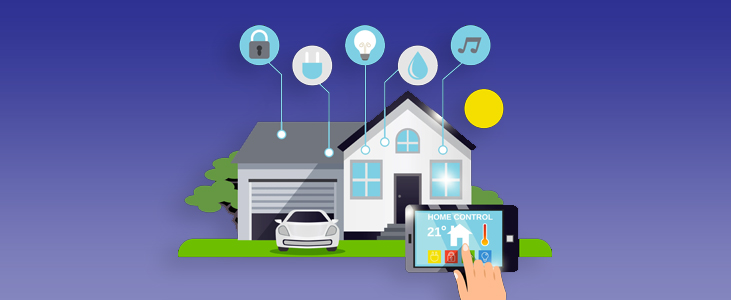Introduction: Embracing the Era of Smart Living
In the age of digital innovation, smart homes have emerged as a hallmark of modern living. Powered by cutting-edge technologies and interconnected devices, these intelligent dwellings offer unparalleled convenience, comfort, and efficiency. From automated lighting and climate control to remote security monitoring, smart homes redefine the way we interact with our living spaces. In this article, we delve into the myriad benefits of smart homes, exploring their transformative impact on daily life.
Understanding Smart Homes: A Fusion of Technology and Comfort
Defining Smart Homes
Smart homes, also known as connected homes or home automation systems, integrate various devices and sensors to enable remote monitoring and control of household functions. These devices communicate with each other through a central hub or a network, allowing homeowners to manage their homes via smartphones, tablets, or voice commands.
Key Features of Smart Homes
- Home Automation: Smart homes automate routine tasks and functions, such as adjusting lighting, thermostats, and appliances, based on predefined schedules or user preferences.
- Security and Surveillance: Advanced security systems equipped with cameras, motion sensors, and smart locks provide real-time monitoring and alerts, enhancing home security and peace of mind.
- Energy Efficiency: Smart home technologies optimize energy usage by regulating heating, cooling, and lighting systems according to occupancy patterns and environmental conditions, leading to lower utility bills and reduced environmental impact.
- Convenience and Comfort: From voice-activated assistants to smart entertainment systems, these homes offer unparalleled convenience and entertainment options, making daily life more enjoyable and hassle-free.
Advantages of Smart Homes
Enhanced Security and Safety
Smart home security systems offer comprehensive protection against intrusions, burglaries, and emergencies. Real-time alerts and remote monitoring capabilities empower homeowners to respond swiftly to potential threats, whether they’re at home or away. Smart locks, video doorbells, and smoke detectors provide peace of mind, knowing that your home and loved ones are safeguarded round the clock.
Energy Efficiency and Cost Savings
One of the most compelling advantages of smart homes is their ability to optimize energy usage and reduce utility expenses. Smart thermostats learn user preferences and adjust heating and cooling systems accordingly, maximizing comfort while minimizing energy wastage. Similarly, smart lighting systems employ sensors and timers to illuminate spaces only when needed, resulting in significant energy savings over time.
Remote Accessibility and Control
The convenience of remote accessibility is a hallmark feature of smart homes. Whether you’re traveling abroad or simply away for the day, you can remotely monitor and control various aspects of your home, such as temperature, lighting, security cameras, and even appliances. This level of control not only enhances convenience but also allows for more efficient management of resources.
Personalized Lifestyle Integration
Smart homes adapt to your lifestyle and preferences, offering personalized experiences tailored to your needs. Whether you prefer a cozy ambiance upon returning home or a wake-up routine synced with your morning schedule, smart home automation makes it possible. By learning from your habits and adjusting settings accordingly, these systems seamlessly integrate into your daily routine, enhancing comfort and convenience.
Future Trends and Innovations in Smart Homes
Integration of Artificial Intelligence
The integration of artificial intelligence (AI) is poised to revolutionize smart home technology, enabling more sophisticated automation and predictive capabilities. AI-powered assistants, such as Amazon Alexa and Google Assistant, can anticipate user needs, analyze data from various sensors, and proactively optimize home environments for comfort, efficiency, and security.
Expansion of IoT Ecosystem
The Internet of Things (IoT) ecosystem continues to expand, with an increasing array of connected devices and sensors entering the market. From smart appliances and wearable devices to connected cars and health monitors, the interconnectedness of IoT devices offers limitless possibilities for enhancing the functionality and connectivity of smart homes.
Sustainable Practices and Green Technologies
In line with growing environmental concerns, smart homes are embracing sustainable practices and green technologies to minimize their ecological footprint. Energy-efficient appliances, renewable energy sources, and water-saving solutions are becoming standard features in modern smart home designs, reflecting a commitment to environmental stewardship and resource conservation.
Conclusion: Embracing the Future of Living
In conclusion, smart homes represent a paradigm shift in residential living, offering unparalleled convenience, comfort, and efficiency. From enhanced security and energy savings to personalized lifestyle integration, the benefits of smart home technology are undeniable. As innovations continue to drive the evolution of smart homes, we can look forward to a future where connectivity, automation, and sustainability converge to create living spaces that enrich our lives and empower us to embrace the possibilities of tomorrow.





